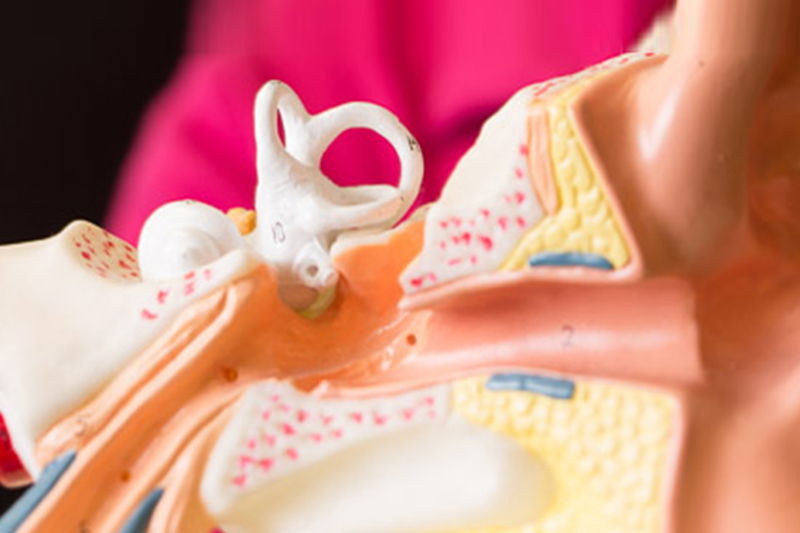Some people are born with it, some acquire it in old age, some have an acute incident, some are exposed to a series of incidents. We’re talking about hearing loss and it can affect anyone at any time and the reasons are varied, including:
- Genetics
- Illness
- Ear-damaging drugs
- Loud music/noise
- Tumors
- Head injury
- Aging
1. The kind of hand-me-down you don’t want
If your parents experienced a genetic mutation that contributed to their hearing loss, you are at risk for the same thing. In fact, it is estimated that 35-55% of age-related hearing loss is genetic.
- Gene mutations can lead to deformation of the inner ear or sensory hair that can result in hearing loss.
- Mutations make some people more susceptible to hearing loss than others or make them more predisposed to hearing loss because of aging or even from noise or infection.
- Some inherited conditions that can lead to hearing impairment are Otosclerosis, Usher’s syndrome and Pendred syndrome.
2. Illness can contribute to hearing loss
Otosclerosis is a disease of the middle ear that affects the movement of the tiny middle ear bones. Otosclerosis can cause a conductive type of hearing loss that can be successfully treated with surgery.
Ménière’s disease affects the inner ear and causes a combination of sensorineural hearing loss, dizziness (vertigo), ringing in the ear (tinnitus), and sensitivity to loud sounds. This type of hearing loss is managed by a doctor and audiologist. Symptoms vary widely between individuals with hearing loss that comes and goes, but over time some loss becomes permanent.
Autoimmune inner ear disease is a sudden-onset hearing loss. With swift medical treatment, the hearing loss from this disease can be reduced.
There are more than 200 of these prescription and over-the-counter drugs —known as ototoxic medications — on the market today. Sometimes the hearing and balance problems caused by these drugs can be reversed when the drug therapy is discontinued. However, sometimes the damage is permanent.
Typically, these drugs are used for serious conditions and health professionals carefully weigh their benefits and potential risks, which include hearing loss.
Some ototoxic drugs are:
- Aminoglycoside antibiotics (such as streptomycin, neomycin, or kanamycin)
- Salicylates in large quantities (aspirin)
- Loop diuretics (lasix or ethacrynic acid)
- Drugs used in chemotherapy regimens (cisplatin, carboplatin, or nitrogen mustard)
4. Tumors can crowd the inner ear
Acoustic neuromas, benign tumors that grow between the inner ear and the brain, can cause hearing loss, ringing of the ears and dizziness. When treatment is warranted, surgery or radiosurgery are the most successful options.
5. Head injury
Head injury in the U.S. is quite common with as many as 5.3 million Americans living with a brain injury at any given time and those injuries can affect hearing. The outer and inner ear are often directly in the path of trauma, so hearing-specific problems often follow a concussion or traumatic brain injury (TBI). A rupture to the eardrum can affect the ability to hear “soft” and “moderate” sounds. If the inner ear hair cells in the cochlea are damaged, the ability to hear clearly is affected. Head trauma can cause inner ear vestibular damage, affecting balance.
6. You can run, but you can’t hide from old age
Hearing loss is perhaps most commonly associated with growing older. Approximately one in three people in the United States between the ages of 65 and 74 has hearing loss. This loss of hearing occurs gradually in most people as they age, making it difficult to notice. Age-related hearing loss most often occurs in both ears, equally and is caused by changes in the inner ear or middle ear, or from complex changes along the nerve pathways from the ear to the brain.
7. That’s why mom said, “Turn that down!”
Loud sound is the only risk factor for hearing loss that is within our control. In 2015, the World Health Organization estimated that 1 billion people are at risk of hearing loss from loud music and other noise.
The WHO study found 50% of 12- to 35-year olds listen to unsafe sound levels on personal audio devices (those ubiquitous ear buds) and about 40% are exposed to damaging levels of music and noise at entertainment venues. And the damage does not take long – as little as 15 minutes at a club pumping 100 decibels or a few hours of ear phones at 85 decibels can do permanent damage.
Beyond music, people with loud occupations or hobbies also risk hearing loss. These risky activities include: shooting (hobbyists and military occupations), machine shops and manufacturing floors, working with lawn mowers, woodworking tools, tractors, snowmobiles and motorcycles.
If you believe you have hearing loss, get a professional evaluation. Contact Sierra Nevada Hearing Aid Center and meet with Dr. Heather Dean to diagnose your hearing and explore your options at 775.882.3277.




